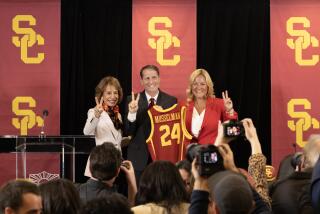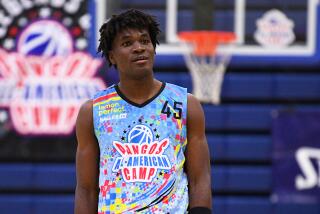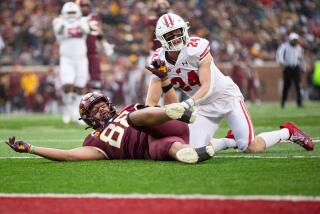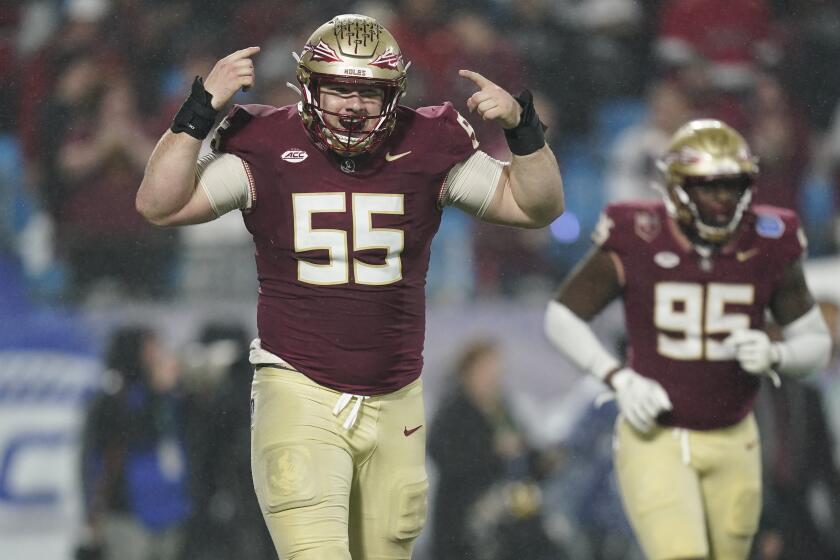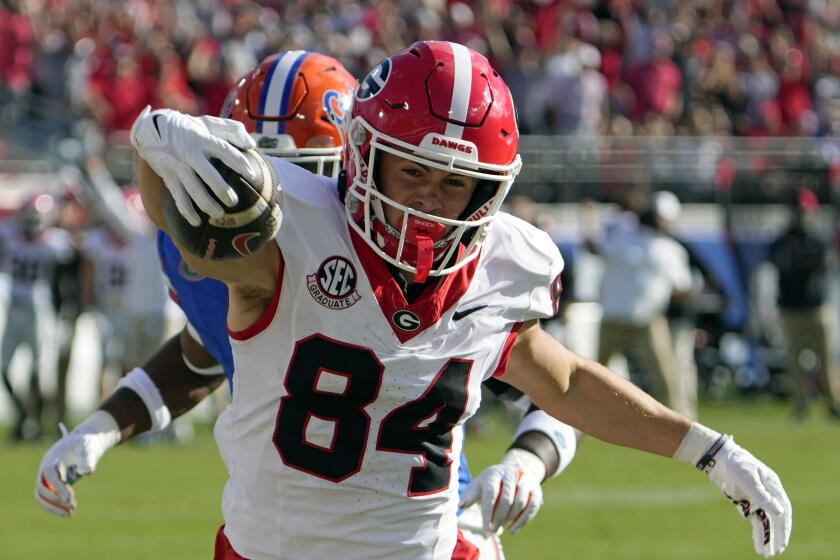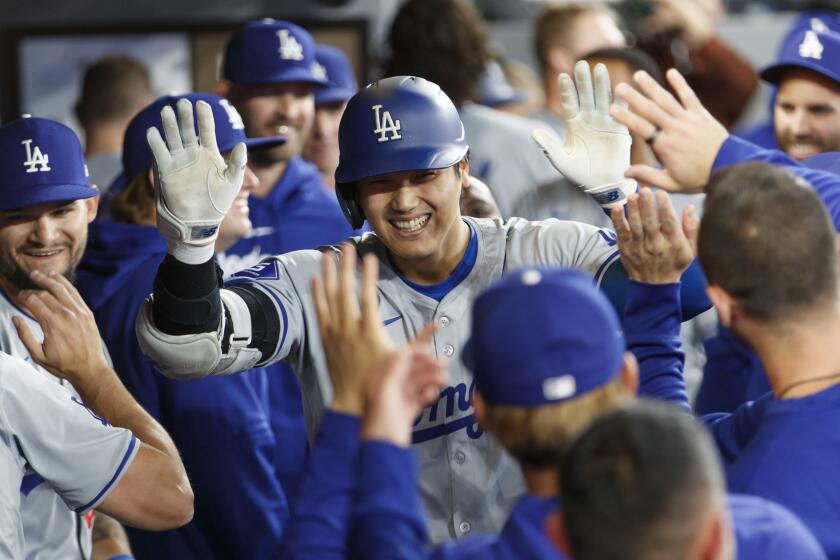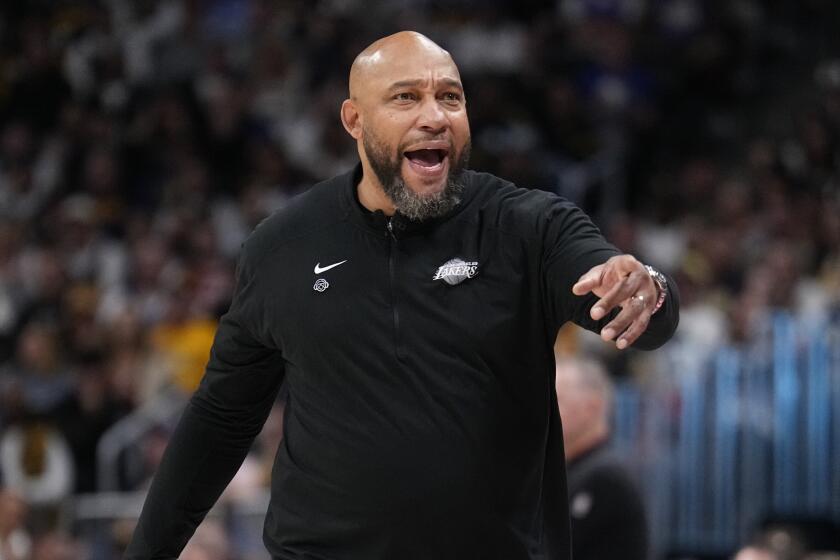Pepperdine men’s basketball gets its academic act together
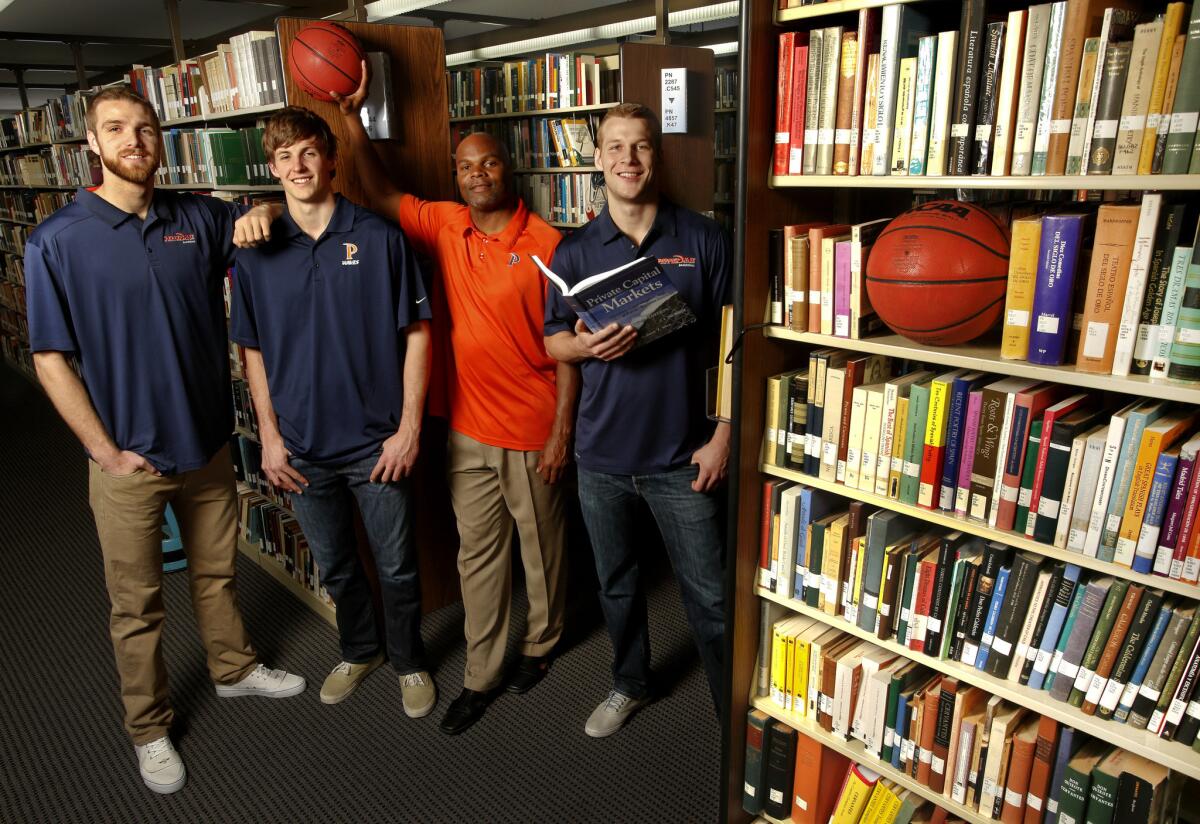
The NCAA and its member institutions often refer to “student-athletes,” but the front side of the term isn’t often highlighted in a sports section. We asked officials from the Southland’s Division I universities to point us toward their best and brightest — the teams that made classroom performance a priority.
Here is what we found at Pepperdine:
Brendan Lane was a big producer for Pepperdine’s basketball team, starting 30 games and averaging 13 points and 7.3 rebounds.
But that’s only part of what made him an “OKG” to those associated with the Waves program.
Lane, a graduate student in applied finance, also carried a 3.53 grade-point average. And that, Coach Marty Wilson said, definitely secured a place in the OKG — “our kind of guy” — category.
The term was coined by an assistant coach as a way to describe the type of player Pepperdine wanted in its program: athletes committed to achieving high levels of success both on the court and in the classroom.
Lane, who played basketball while earning a degree from UCLA in three years, fits the bill. He and players like him are responsible for Pepperdine’s emerging from the academic hole its team was in when Wilson returned to campus six years ago.
The hole was deep.
Pepperdine had six different head coaches between the spring of 1994 and the fall of 2008, and a once-proud program had fallen into disarray on and away from the court.
Waves basketball players had failed to advance toward graduation in an academic performance so dismal that the NCAA stripped away two scholarships and enforced other sanctions.
“The program was really a mess, academically and basketball-wise,” former Pepperdine coach Tom Asbury recalled.
In 2008, Asbury was called in to clean up the mess. He had guided Pepperdine before, to a 125-59 record in six seasons, from 1988-89 to 1993-94. And Asbury called back Wilson, a former Pepperdine player and assistant coach who had become an assistant coach at Utah.
Wilson left Utah for Pepperdine with the promise that he would take over the reins from Asbury in a few years. Together, they inherited a team that had a record of 11-21 the previous season and, more daunting, was under an NCAA magnifying glass. Along with the scholarship reductions, Pepperdine coaches were handicapped by a reduced number of hours they were allowed to spend on recruiting.
“We knew we had a program that was faltering and we knew we had to reconstruct,” said John Watson, then the school’s athletic director. “Given the dilemma we found ourselves in, they needed to turn things around.”
Wilson remembers that on his first day back on campus, he found himself bouncing from meeting to meeting with Pepperdine administrators who were committed to lifting the basketball team’s academic performance.
“We knew the cards we were dealt,” Asbury recalled.
A shift in priorities was the first order of business. Recruits were chosen with an emphasis on those who could succeed in a rigorous academic environment. And that meant that sometimes the coaches had to pass on players who could help them on the court but might struggle in the classroom.
The first year, Asbury and Wilson cut two star players who had shown little interest in their studies. Losing those players and a top recruit, future NBA star Paul George, hampered an immediate turnabout in the win-loss column.
“We had to get better students first,” Wilson said. “Guys that were committed students, committed to graduating, committed to going to school.”
Six years later, Wilson recently completed his third season as head coach. And he now has a roster full of OKGs.
In those six years, 18 Pepperdine men’s basketball players have received the West Coast Conference Commissioner’s Honor Roll award — given to players who earn a 3.0 GPA or better — and nine have been selected to the conference’s All-Academic team.
“I think the biggest thing is recruiting guys who are self-motivated to succeed academically,” said sophomore forward Jett Raines, a double major in computer sciences and mathematics. “If the student doesn’t want to succeed or give it his best, then it’s not going to work out. On our team we have a lot of guys that care a lot about academics.”
The team holds study halls and provides tutors. The players also participate in mentorship groups, where they can discuss their goals and upcoming tests with the coaches. An academic advisor makes personalized study schedules for players who need extra help managing their time.
Through these efforts, the coaches know where their players stand academically at every point during the season and can make moves to help those who are struggling with grades.
An athlete’s social life can suffer because of team academic obligations, but Raines said the policies helped him become a better student.
“As much as study hall is kind of an inconvenience some nights, I try to be mature about it and get work done,” he said. “I’ve learned to do that through my years of being here.”
Former athletic director Watson says the NCAA sanctions were a wake-up call. “It’s nothing I’d encourage anybody to have to go through,” he said, “but it allowed and forced us as an institution to focus not just on athletic success but also on academic success.”
On-court performance is a work in progress. In the first five years of the transition, the team had a record of 50-105, but the Waves were 15-16 this past season.
“We’re not there yet,” Wilson said, “but I’m pleased at where we’re headed.”
More to Read
Get our high school sports newsletter
Prep Rally is devoted to the SoCal high school sports experience, bringing you scores, stories and a behind-the-scenes look at what makes prep sports so popular.
You may occasionally receive promotional content from the Los Angeles Times.
